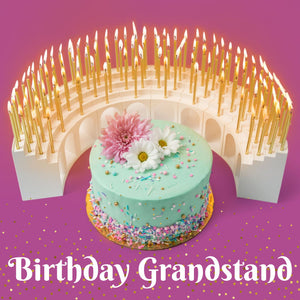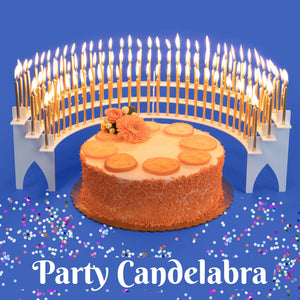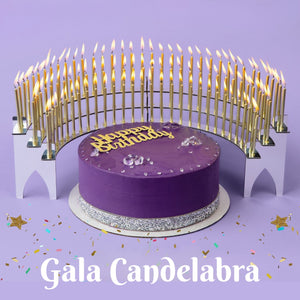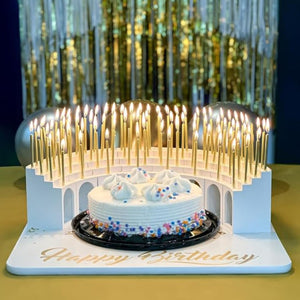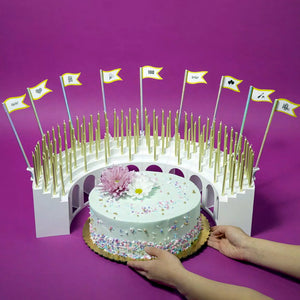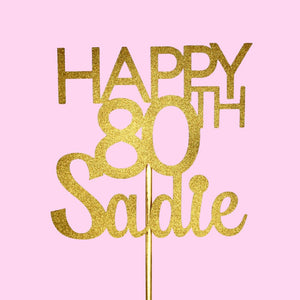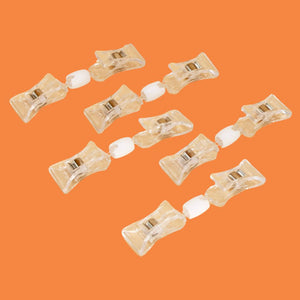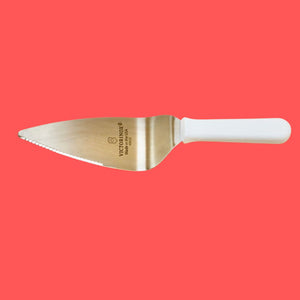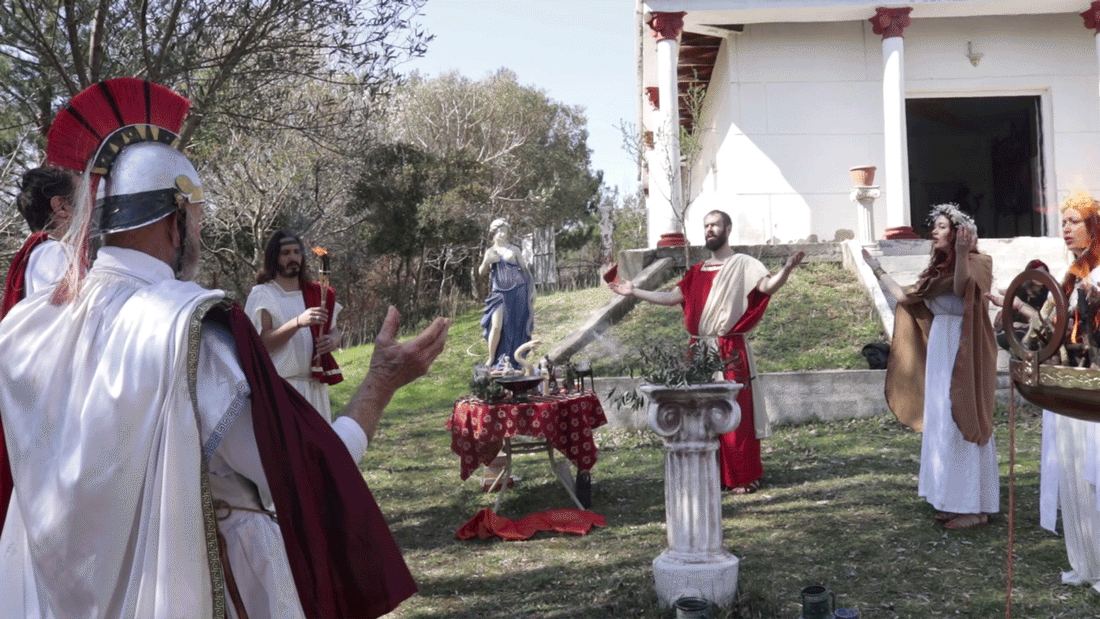
Where Did Birthday Candles Come From and What is the New Way to Make A Wish
Share
Who doesn't love the birthday ritual of making a wish while blowing out the candles? But when did this tradition first begin, and where did it originate?
Many historians trace it back to ancient Greece. As a way to show their respect for the god Artemis, the Greeks created cakes in the shape of the moon and decorated them with candles to represent moonlight. They believed their prayers were transported to heaven on the smoke.
In the middle ages Germans would celebrate "Kinderfest" children's birthdays with simple bread-like cakes. A single candle was placed on the cake symbolizing the "light of life."
The practice blossomed to a whole new level in 1746 when Count Ludwig Von Zinzendorf hosted a grand birthday party. A guest at the party wrote about the

Experience, "there was a cake as large as any oven could be found to bake it, and holes made in the cake according to the years of the person’s age, every one having a candle stuck into it."
Forward to the mid-1800s, the practice of blowing out the candles on birthday cakes became increasingly common in Europe, especially among the well-to-do who could afford decorated cakes. In the U.S. industrialization made baking products with reach of many families and birthday cakes become widespread by the end of the nineteenth century.
Birthday cakes and candles are a timeless simple joy that allow for a moment of reflection on a special day once every year. Now we've updated the tradition -- and upped the joy -- thanks to the Celebration Stadium Birthday Candelabra.

Celebration Stadiums & Accessories
See the spectacular Celebration Stadiums for an unforgettable birthday celebration. Shop for candles, cake toppers, and other party accessories.
- recently patented invention holds up to 100 birthday candle
- celebrate with a candle for every year
- semi-circle to wrap around a birthday cake
- makes for spectacular photos and videos
- keeps the candles off the cake surface -- no wax puddles
- more sanitary for blowing out the candles
- reusable for years of celebrations
- comes apart for flat storage
- 5-star customer reviews and their submitted photos
Birthday candles never had it so good! With a Celebration Stadium your birthday party will be an unforgettable milestone event. See the full range of Celebration Stadiums and accessories.
History of Birthday Cake
The tradition of the birthday cake has its roots in ancient civilizations, evolving over centuries into the sweet, frosted confections we know today. Originally, these cakes were simple, bread-like, and often unsweetened. The Greeks, for instance, offered round cakes to Artemis, the moon goddess, symbolizing the moon's glow with lit candles. As time progressed, these ritual offerings transformed into celebratory delicacies. By the Middle Ages, Europeans had adopted this tradition, infusing it with their own customs and flavors. The birthday cake, as we recognize it, began to take shape, becoming a central emblem of birthday festivities and a canvas for artistic and culinary expression.
History of Birthday Candles
The origin of birthday candles can be traced back to ancient Greece, where candles were placed on cakes to honor Artemis, the moon goddess. The Greeks believed that the smoke from the candles carried their prayers to the heavens. This practice evolved over time, especially in Germany, where during "Kinderfest," a candle symbolizing the "light of life" was placed on the cake. The turning point in birthday candle history was in 1746, when Count Ludwig Von Zinzendorf hosted a lavish birthday party, featuring a cake adorned with candles corresponding to each year of life. This extravagant display set the precedent for the modern custom of decorating cakes with numerous candles to celebrate one's age.
When were Birthday Candles Invented?
The precise origin of birthday candles is shrouded in history, but it's widely believed they were first used in ancient Greece. The Greeks placed candles on cakes to honor Artemis, the goddess of the moon, symbolizing the moon's glow. The tradition evolved in Germany during Kinderfest celebrations. Over the centuries, this practice morphed into the common birthday tradition we recognize today, with candles signifying each year of life and the continuation of this ancient, symbolic ritual.
Why Do We Put Candles on a Birthday Cake?
Placing candles on a birthday cake is a tradition steeped in historical significance and symbolism. Originating from ancient rituals, the act of adding candles to a cake has become an integral part of birthday celebrations, symbolizing joy, life, and the passage of time. Today, the aesthetic of this tradition is enhanced with modern touches like stylish birthday candle holders, which not only add elegance to the cake but also symbolize the light and warmth that the celebrant brings into the lives of others. These holders have become a centerpiece of celebrations, blending tradition with contemporary design.
Why Do We Blow Out Birthday Candles?
The tradition of blowing out birthday candles carries deep symbolic meaning. It's believed to represent the extinguishing of the old year and the welcoming of the new. This act is often associated with making a wish, a hopeful look towards the future. For milestone celebrations like a 70th birthday, this ritual holds even greater significance, marking the culmination of years of experiences and the anticipation of more to come. In case you're pondering 70th birthday party ideas, having a candle holder with 70 lit candles around the cake will make the event memorable.
How Did Birthday Celebration Get Started?
The origins of birthday celebrations are deeply rooted in ancient customs and folklore. While the exact beginning is a bit of a mystery, it's believed that the practice started with the Egyptians, who celebrated the pharaohs' "birth" as gods. This idea was later adopted by the Greeks, who offered cakes to Artemis, symbolizing the moon's glow. These celebrations were marked with festivities, gifts, and public declarations, setting the stage for the elaborate birthday traditions we observe today. As time progressed, these customs spread across Europe and underwent various transformations, eventually becoming the personal and joyous occasions we know, complete with cakes, tall birthday candles, and the Happy Birthday song.
Related blogs
-

How We Celebrated An Unforgettable 70th Birthday With Our Celebration Stadium (Customer Review)
It’s inspiring to see how celebrators deploy their Celebration Stadiums - we love that so many of you share your ex...
-

More Than Just Blooms: Why Birthday Flowers Spark Joy and Create Memories
Birthday blooms are more than just a pretty present; they're a vibrant way to add cheer and meaning to a special day...
-

11 Heartfelt Steps to Create a Remarkable Milestone Birthday: Your Celebration Planning Blueprint
Take a deep breath. Someone extraordinary in your life is approaching a major milestone birthday, and you want to cre...
-

Get Ready For January Birthdays
Happy Birthday to Your Coolest Person Born in the Coldest Month January birthdays have a magical charm all their own....
-

Nailed It: Birthday Bashes During the Holidays
So, your birthday's smack dab in the middle of the holiday chaos? Don't sweat it! You can still have a blast without ...
-

Creative Ways to Celebrate Your Golden Birthday at Home
By Wesley Masters Originally posted on the Rent blog, republished with permission. Your birthday is always a special ...
-

Celebrating 80 Years of Sisterhood: A Twin Birthday Bash
Some milestones just require a special celebration. This summer, we gathered to celebrate a truly remarkable event:...
-

Trendy Birthday Party Decoration Ideas for Your Big Day
Planning a party can be both exciting and overwhelming. From choosing a theme to picking out decorations, every det...
-

Popsicle Party Decoration Ideas and Tips
Picture this: It's a warm summer afternoon, and the sun shines brightly. Kids are laughing, and everyone is ...
-

Tips for Hosting Meaningful Birthday Celebrations
Tips for Hosting Meaningful Birthday Celebrations Guest Writer: Birthday Party Professional Natalie Mayhew, owner and...
-

Party Planning Checklist: The Ultimate Guide for Every Event
Is birthday party planning causing you more anxiety than excitement? It can feel overwhelming but know you're not a...
-
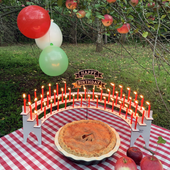
7 Steps to Planning a Kid’s Birthday Party
Remember that time you spent weeks planning your little adventurer's birthday party? You blew up balloons until you...
-

Celebrate a July 4th Birthday: Red, White & Festive Ideas
Our mom's birthday is July 3rd, so we've always enjoyed a patriotic theme for her parties. What could be a better t...
-
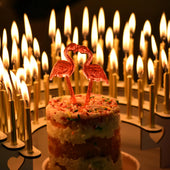
10 Fabulous Ideas for the Perfect 40th Birthday
It’s your birthday! Are you planning a fun celebration with your favorite person? Or it’s your friend’s birthday, a...
-

10 Surprise Birthday Ideas For A Best Friend
Remember the time when you and your best friend stayed up all night, laughing and sharing stories? It puts your hea...
-
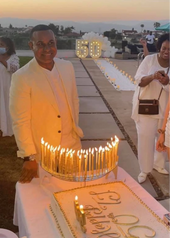
10 Extra Special 50th Birthday Gift Ideas For Men
Turning 50 calls for a gift as fabulous as the milestone itself! Finding the perfect present for your husband, ...
-
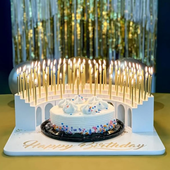
Birthday Decoration Ideas for Home: Decor Tips & Affordable Party Props
Creating an unforgettable birthday bash at home doesn't need to break the bank or be a hassle. With some clever...
-

12 Unique Birthday Party Ideas for a Memorable Celebration -2024
If you’re like most people, your birthday is something to look forward to. It’s more than just another day of the y...
-

What are Milestone Birthdays, and Why are They Important?
Milestone birthdays are significant landmarks in our lives, representing critical transitions and stages of maturit...
-
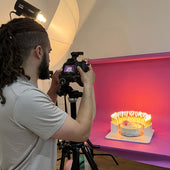
Behind the Scenes with Celebration Stadiums Photoshoot
Our Commitment to Sharing Milestone Birthday Solutions Celebration Stadiums were invented by our dad a few years ag...
-

How to Celebrate 100th Birthdays!
100th birthdays are rare and momentous occasions to celebrate lives well-lived! Only about one in 4,500 Americans a...
-
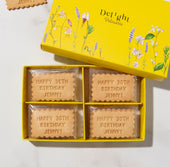
Personalized Birthday Gift Idea - Shortbread, They're Crazy Good
Looking for unique, personalized gifts? You know Celebration Stadium for our birthday candelabras ... now we are in...
-
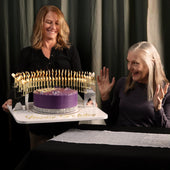
Elevate Your Celebration with a "Grand Entrance Tray"
CUE THE ENTRANCE The lights go down, there's a sudden hush, smiles break out and the singing begins. No matter how ...
-

Celebration Stadium Honoring a Presidential Birthday
We were delighted to support the 99th birthday celebration of former President Jimmy Carter with a Celebration Stad...
-
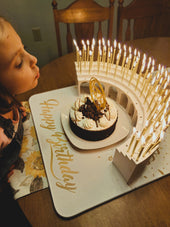
Savoring Every Second: One Candle For Every Month We Love You
Guest Post by Ashley Anderson, Owner of The Village Hive Today, I find myself on the brink of celebrating my last b...
-
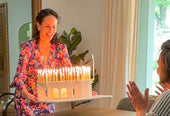
Grandstand: The Ultimate Birthday Cake Candle Holder for Ages 10 - 110!
TLooking for a unique way to celebrate a birthday? The newest Celebration Stadium birthday candle holder, the Grand...
-

The Pressing Importance of Celebrating Birthdays
It’s not that celebrating birthdays is by its nature important for human life. There were societies or cultures whe...
-
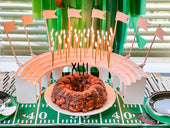
Tips For Planning Super Birthdays As We Get Older
Guest Post by Ashley Denk, Owner of Hudson Grey Events When your husband’s birthday falls on Super Bowl Sunday, yo...
-

Milestone Birthday Ideas for Every Age
Why Should We Celebrate Milestone Birthdays? Celebrating milestone birthdays is a way to honor significant chapters...
-
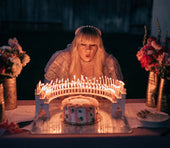
Influencer Suggestion: How to Plan A Birthday Party
By special contributor Elizabeth Hugen, known as California fashion blogger Lizzie in Lace. She describes herself a...
-
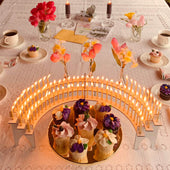
Plan Your Mother’s Best Birthday Celebration
It’s said that God couldn’t be everywhere so he created moms. With Mother’s Day around the corner we’re sharing som...
-
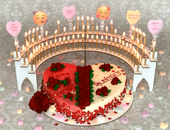
Celebrate A Valentine's Birthday 💖
If you or someone close to you has a birthday on Valentine's Day you know it can be a mixed blessing. And you're no...
-

Let's Celebrate: Special Days Around the World!
By Carey Ide, Co-Owner, Celebration Stadium LLC It may be cliché to say, but hey, life is short. In between the dem...
-
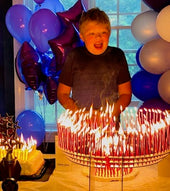
Celebrate 13 Year-Old's Birthday Party with 350 Candles
Aidan is a just-turned 13 year-old living in Stratham, NH. His birthday party on July 24th was an especially joyous...
-
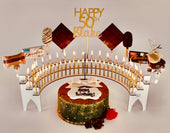
How Do You Make Milestone Birthdays 🎂 Meaningful & Memorable?
Planning A Big Birthday Is Challenging How do you make the big day unforgettable for the birthday-person? And fun f...
-
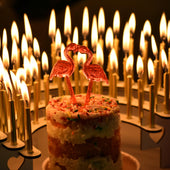
How to Plan a Perfect Surprise Birthday Party
This feature is reposted with permission from Bianca Octavia, creator of the DIY HER blog working with Celebration ...
-
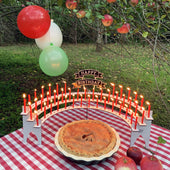
Taking Your Celebrations Outside
These crazy days people are hosting more gatherings out of doors. We recently went to a wonderful 50th birthday par...
-
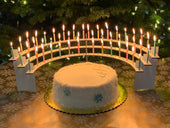
'Tis the Season
We're celebrating a December birthday with a special cake from the Blackbird Bakery of Bainbridge Island, WA, Celeb...
-

Celebrate Every Decade
We've all been "Denarians" (people age 10 to 19 years old, i.e. teenagers). Do you know the names fo...
-
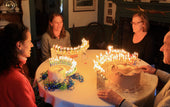
A Candle for Every Year
Remember, growing up, the joy of celebrating your birthday with a candle for every year? Thanks to Celebration Sta...
-

The Art of the Party
How To Host At Home: Thoughtful Tips From Anna Bond, Co-founder of Rifle Paper Co ...
-

There's more to life than cake! Ten tasty birthday celebration alternatives
Sometimes birthdays need to be gluten-free because of diet or jus...
-

60th Birthday Bash: OMG...Organizing My Wife's Big Day
By Wil Merritt, Co-Founder of Celebration Stadium Here at Celebration Stadium we are privileged...
-
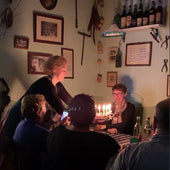
Birthdays Travel Too: Celebration Stadium Goes to Italy
Fabulous restaurant La Carabaccia in Tuscany By Carey Ide, Co-founder, Celebration Stadium Buongiorno! Celebrating ...
-
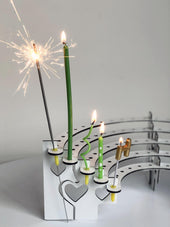
Decorating for a great birthday celebration: 10 Tips & Tricks
Vary the size and types of candles. Even sparklers! Small pom-poms on 10" wooden skewer...
-
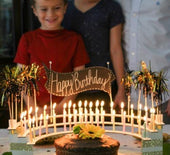
Tips for Making a Milestone Birthday Party Memorable
At Celebration Stadium we love making birthday celebrations extra special! Because of that, we partnered with lifes...
-
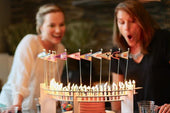
Milestone Birthday Party Success: Ideas and Tips from Ten Event Experts
Milestone parties should be as special as the people being honored. We have gather...
-
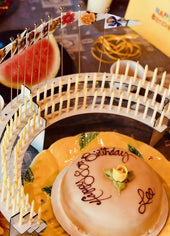
Go One Step Further to Personalize Your Celebration
One of the most thoughtful ways to show how much you care about someone is to personalize their celebra...

